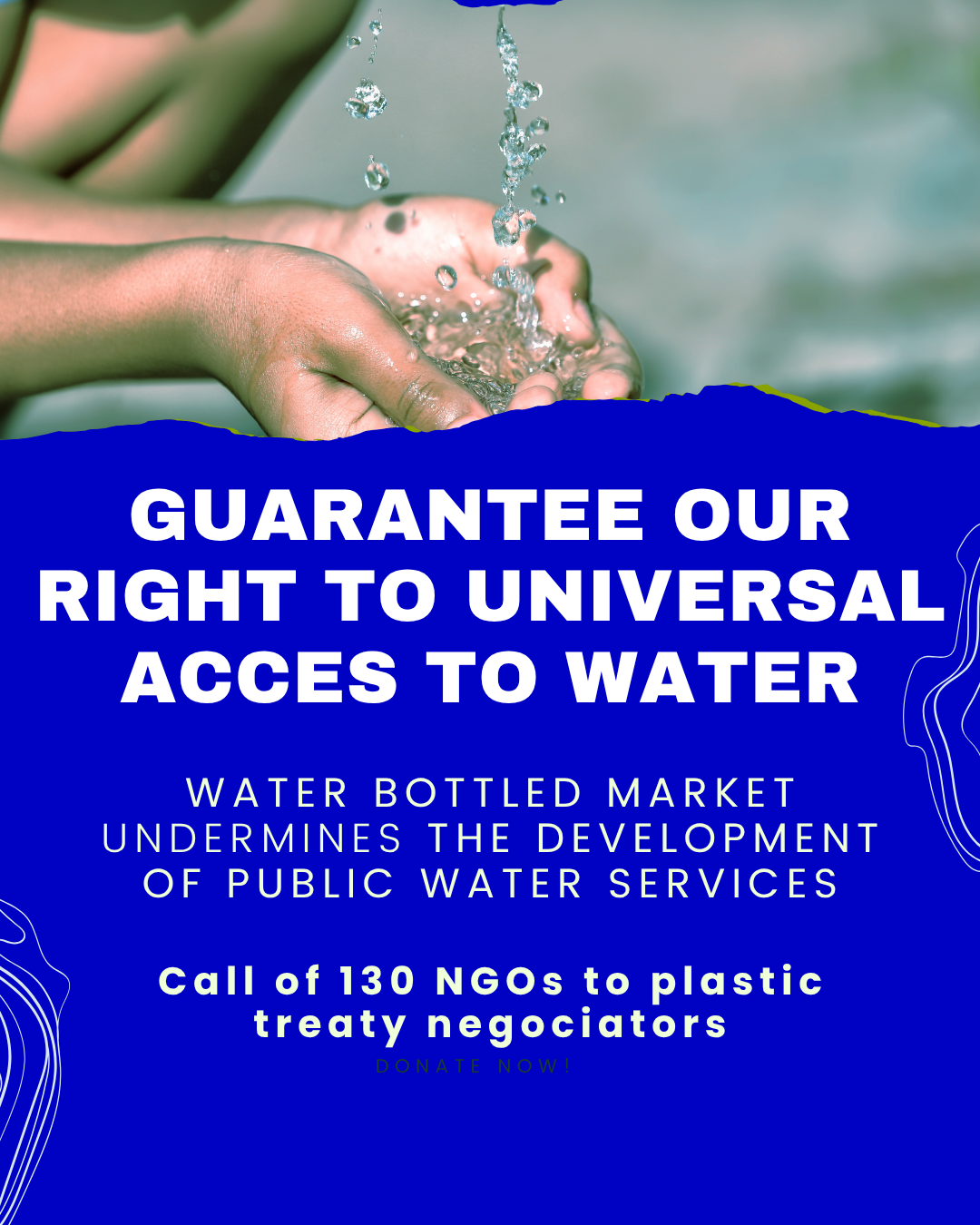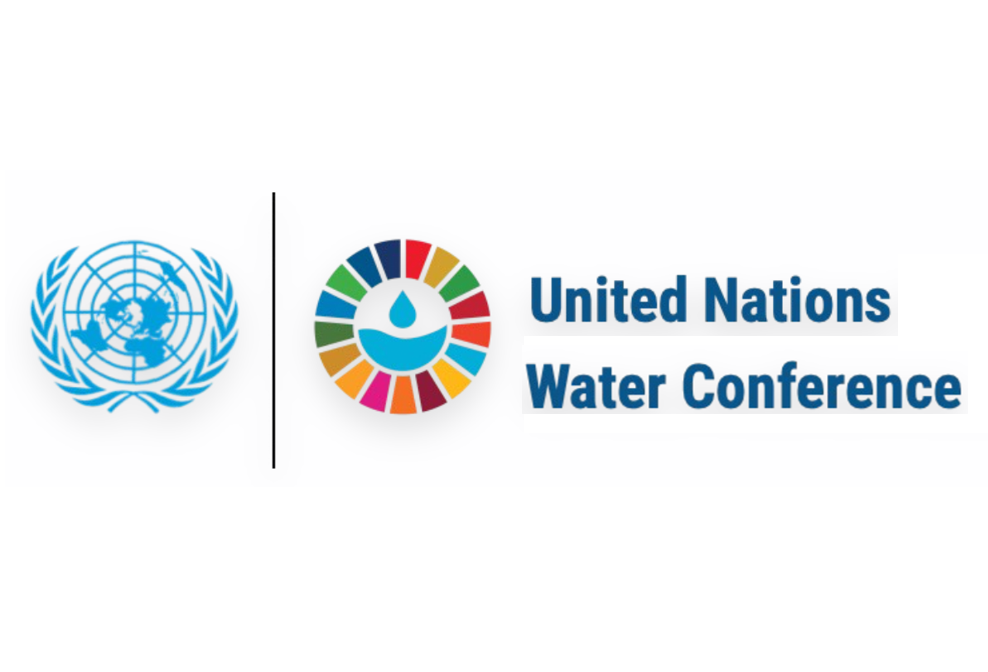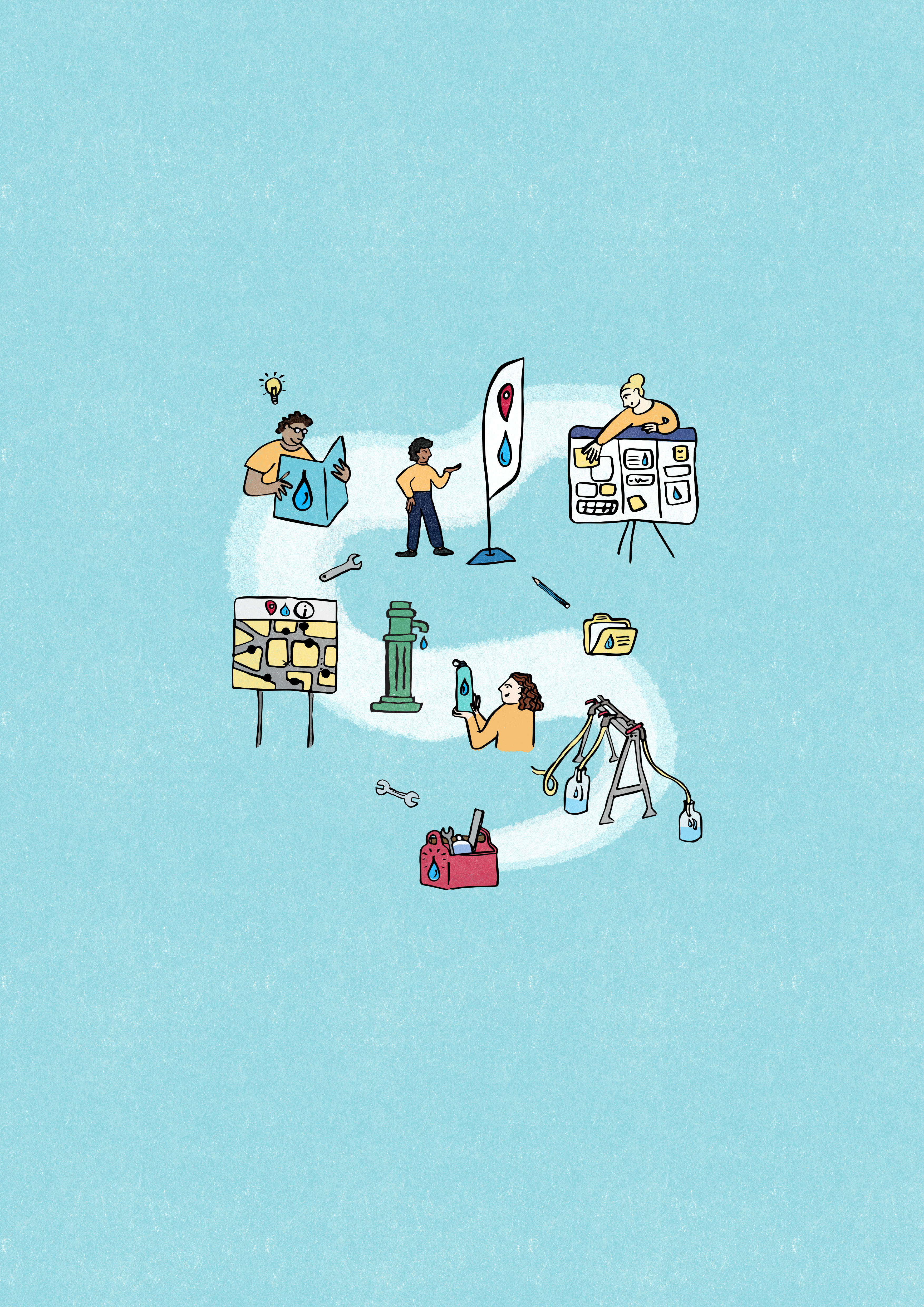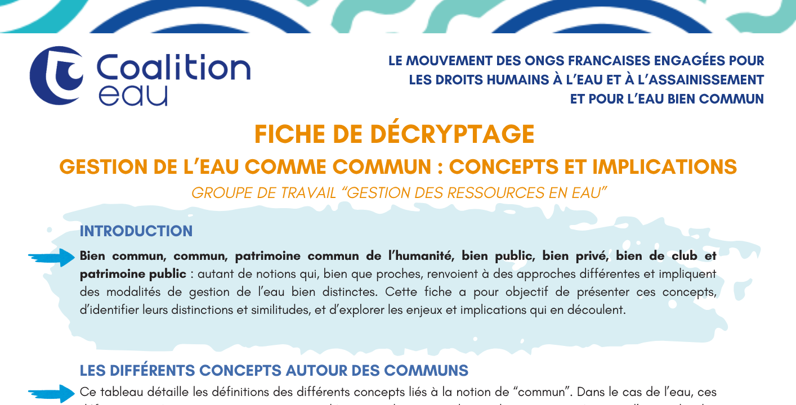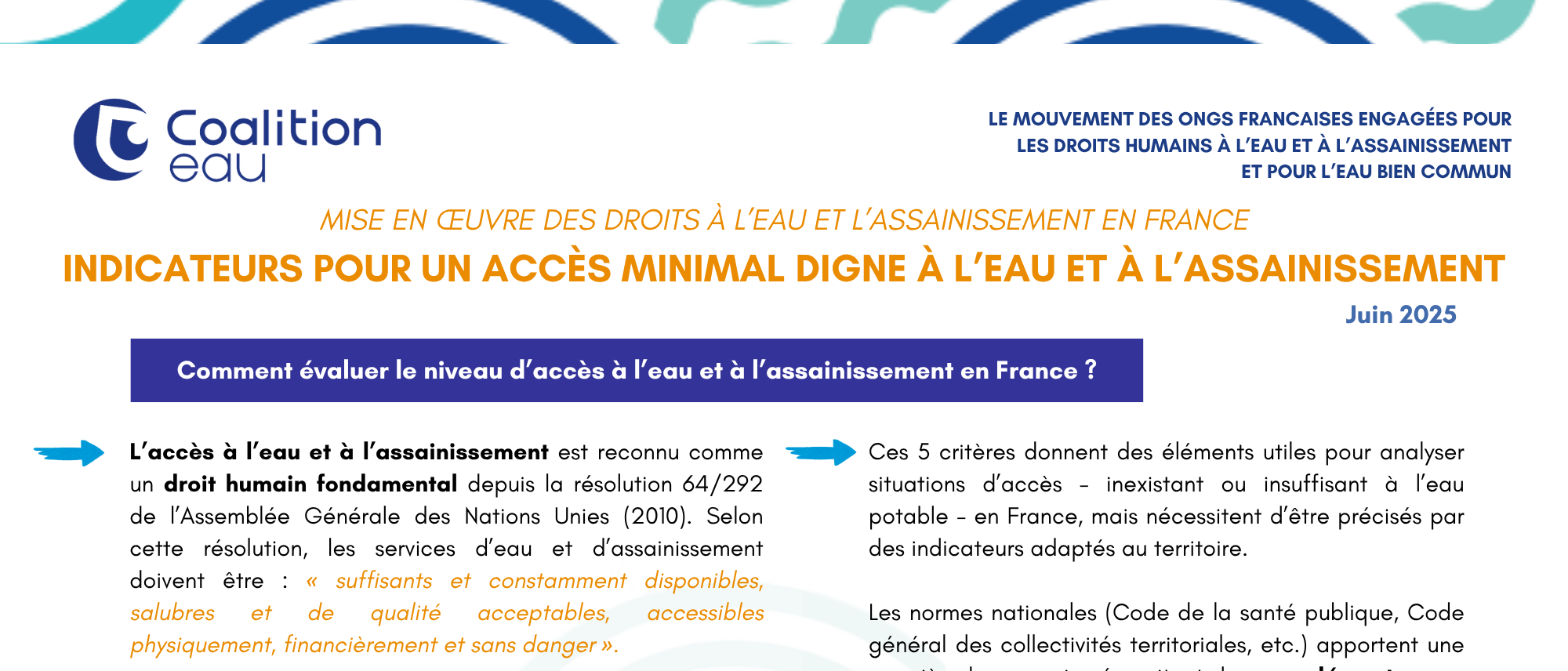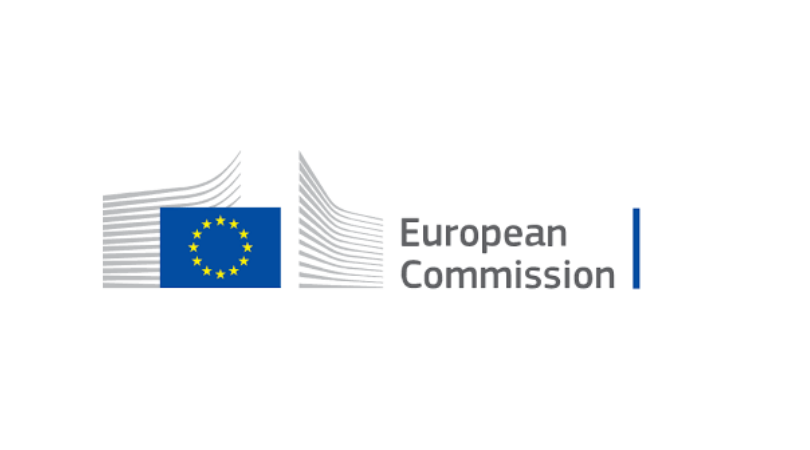July 30, 2025
130 NGOs across five continents urge the Global Plastics Treaty negotiators to strongly reduce plastic bottle production and all single use plastics, to support a global reduction target.
There is strong scientific evidence that plastic bottles are a major source of plastic pollution. According to studies, they are the 2nd most common plastic waste items found across all aquatic environments, including deep seafloors where they account for up to 23% of observed debris1.
Plastic bottle production is unsustainable but continues to expand2. The rapid growth of the bottled water industry (+73% in the last ten years) is expected to continue, reaching +4.7% per year to 20343.
The plastic bottling industry also undermines progress towards a key sustainable development goal (SDG 64), ‘safe water for all’.
In 2021, the bottled water market was estimated to be worth almost 270 billion dollars. In comparison, the annual funding needed to achieve universal provision of drinking water is estimated at 114 billion dollars. Ensuring universal access to drinking water would only cost about half of what the world pays each year for bottled water. Bottled water per litre can cost 150 to 1,000 times more than the price a municipality charges for tap water as stated by a United Nations University report.5 In addition, hydration in plastic bottles poses serious health risks, as one study found 240 000 micro- and nano-plastic particles in one plastic bottle of water6.
Within the treaty draft, Article 3 is crucial to making Article 6 – on necessary plastic production reduction – work, by restricting a number of problematic plastics, notably single-use, and chemical substances. As it stands, it includes numerous contradictory drafting options and limited annexes. It is essential that the negotiations finalize a binding and comprehensive text that includes both product bans and reduction targets on other items that contribute significantly to plastic pollution.
Therefore we urge negotiators to ensure Article 3 of the treaty is as strong as possible, including an explicit mention of single-use plastics restrictions. The treaty must enshrine clear reduction targets for single-use plastic bottles, which cause irreparable and disproportionate harm to the environment and impede the universal right to water.
Reducing the use of plastic bottles is a simple and powerful lever for combating plastic pollution while promoting access to plastic-free water. Recent initiatives reflect a willingness from states to take action, but they face industry resistance.
- In Oman, the government has introduced a policy aiming to eliminate single-use plastics, starting with plastic bottles via simple measures such as “bring your own bottle” and banning them from certain events7.
- In Indonesia, local bans of small plastic bottles have been implemented in 2025 but face industry resistance8.
- In France during the Paris 2024 Olympic Games, plastic bottle consumption was one third of the 2012 London Olympic Games, despite Coca-Cola company sponsorship.
- In Thailand, the Bangkok Metropolitan Authority has installed refill stations providing free, clean water, saving over two million plastic bottles. The Governor’s office has committed to installing 200 additional refill stations in the near future.
Including concrete restrictions on plastic bottles in the treaty is the only way to allow States to effectively reduce this major source of pollution and to support a global reduction target.
Read the full appeal on this link and find the complete list of signatories
Press contacts :
- No Plastic In My Sea : Muriel Papin, Executive Director : contact@noplasticinmysea.org, + 33 6 07 14 76 02
- ANEW: Sareen Malik, Executive Secretary ANEW, s.malik@kewasnet.co.ke
- Coalition Eau: Edith Guiochon, Interim coordinator, edith.guiochon@coalition-eau.org, +33 6 79 73 54 97
- EJF : Alex Morrice, Communications Lead, alex.morrice@ejfoundation.org, +44 7840 748375
- Water Integrity Network: Claire Grandadam, WIN Programme Lead – Communications – cgrandadam@win-s.org, +49 176 416 49920
- Surfrider Foundation Europe: Lionel Cheylus, Press relations, lcheylus@surfrider.eu | (+33) (0)6 08 10 58 02

